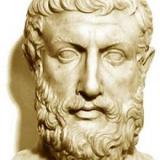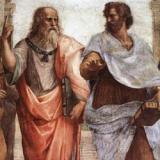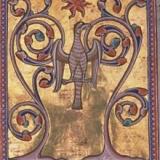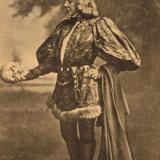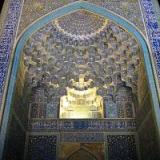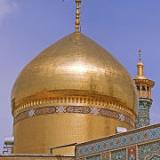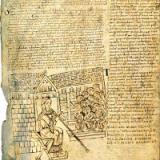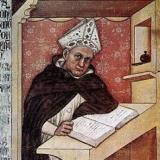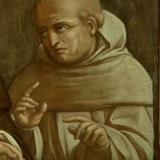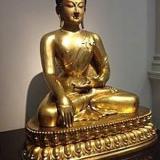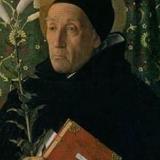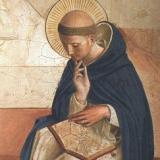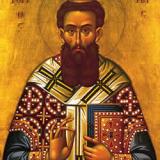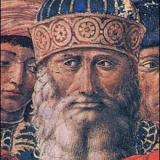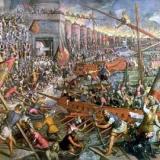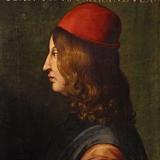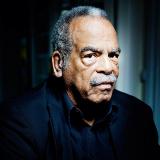Being and Existence
Posted on
Peter discusses the "father of metaphysics," Parmenides, and his argument that all being is one.
Posted on
Aristotle rejects Plato's Forms, holding that ordinary things are primary substances. But what happens when we divide such substances into matter and form?
Posted on
Avicenna revolutionizes metaphysics with groundbreaking ideas about necessity and contingency, and his new distinction between essence and existence.
Posted on
Avicenna’s distinction between essence and existence triggers a running debate among philosophers and theologians.
Posted on
Mullā Ṣadrā, the greatest thinker of early modern Iran, unveils a radical new understanding of existence.
Posted on
From Sabzawārī in the 19th century to Seyyed Hossein Nasr today, Iranian thinkers promote and respond to the thought of Mullā Ṣadrā.
Posted on
Little-known authors prepare the way for scholasticism with glosses on logic, metaphysical debate, and a poem about a cat.
Posted on
Philip the Chancellor introduces the transcendentals, a key idea in medieval metaphysics and aesthetics.
Posted on
Albert the Great’s theory of being and his attempt to explain what changes in the human mind when we come to see God in the afterlife.
Posted on
Henry of Ghent, now little known but a leading scholastic in the late 13th century, makes influential proposals on all the debates of his time.
Posted on
Duns Scotus attacks the proposal of Aquinas and Henry of Ghent that being is subject to analogy.
Posted on
Nāgārjuna founds the Mādhyamaka (“middle way”) Buddhist tradition by “relinquishing all views” and arguing that everything is “empty.”
Posted on
A discussion with Jan Westerhoff, an expert on the great Buddhist thinker Nāgārjuna, dealing with the notion of emptiness, the tetralemma, and Nāgārjuna's reception in India and Tibet.
Posted on
The scholastic and mystic Meister Eckhart sets out his daring speculations about God and humankind in both Latin and German.
Posted on
Dietrich of Freiberg, Berthold of Moosburg, John Tauler and Henry Suso explore Neoplatonism and mysticism.
Posted on
Gregory Palamas and the controversy over his teaching that we can go beyond human reason by grasping God through his activities or “energies”.
Posted on
Was Gemistos Plethon, the last great thinker of the Byzantine tradition, a secret pagan or just a Christian with an unusual enthusiasm for Platonism?
Posted on
When the Byzantine empire ended in 1453, philosophy in Greek did not end with it. In this episode we bring the story up to the 20th century.
Posted on
Pico della Mirandola argues for the harmony of the ancient authorities, draws on Jewish mysticism, and questions the value of humanist rhetoric.
Posted on
Poet, novelist, playwright and philosopher Edouard Glissant, his theory of "creolization", and the Creolists who were influence by him.

